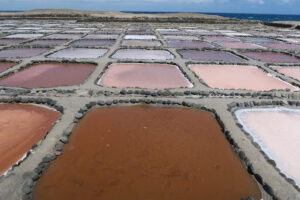APPLICATIONS OF TECHNOLOGY:
- Battery manufacturing
- Lithium and Magnesium extraction
- Water treatment
BENEFITS:
- Cost effective and reusable
- Environmentally friendly
- High purity and recovery rates of Mg2+ and Li+
BACKGROUND:
- The demand for minerals such as lithium and magnesium have increased drastically due to their extensive applications in high-tech and green energy sectors such as energy storage and electric vehicles. Lithium resources from salt lakes account for nearly 60% of the world’s identified lithium reserves, however, traditional ion-removal methods (precipitation, ion exchange, and reverse osmosis) often lack specificity, are energy-intensive, and only reach 40% efficiency, leading to substantial lithium wastage and consequently high costs.
TECHNOLOGY OVERVIEW:
Researchers at Berkeley Lab have developed a polyoxometalate (POM)-based system designed for the selective removal and recovery of critical metals, specifically lithium and magnesium, from nontraditional brine sources. The POM-based system addresses the issues of traditional ion-removal methods by having a remarkable selectivity ratio for Li+ and Mg2+ of over 1000, rapid separation under one minute, and facile regeneration of the POM structure, allowing for cost effective separation and recovery of these valuable metals.
DEVELOPMENT STAGE: Laboratory scale, similar system validation in relevant environment
PRINCIPAL INVESTIGATORS: Chaochao Dun, Linfeng Chen, and Jeffrey Urban
IP Status: Patent pending
Related Technologies:
New low-temperature process for extracting lithium from alpha spodumene (2024-019)
Electrochemical Leaching of Lithium from Clays (2021-166)
OPPORTUNITIES: Available for licensing or collaborative research
